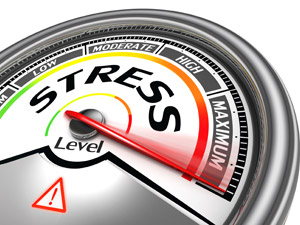“RAIN, rain, rain. This weather’s getting me down.” How often have you heard that? The way bad weather makes us miserable is proof of the powerful mind/body connection that links physical well-being with our mood. “Weather is a known catalyst for mood swings,” says Dr. Norman Rosenthal, a psychiatrist with America’s National Institute of Mental Health. “As the human body responds to the outside weather elements, it makes inside adjustments that subtly affect our emotional well-being.”
Medical knowledge is changing all the time so here’s my update on what we now know about mood plus advice on how you can improve your mood by working on your fitness.
First the science: Our brain produces chemicals called neurotransmitters which relay signals from one side of the brain to the other. One is serotonin and while its main job is to control your intestines it also affects your mood, appetite, sleep, sexual desire, memory and learning.
It’s one of the brain’s natural anti-depressants and research shows that if your brain’s producing too little serotonin it can lead to anxiety and in some cases depression.
What increases your serotonin level and makes you feel good? Bright light – such as that big yellow thing in the sky – and exercise. What reduces it? Dull gloomy days and inactivity.
The good news is there’s something you can do about your mood, whatever the weather. There are other natural chemicals in the brain called endorphins, which produce happy feelings, control our appetites, release sex hormones and lower stress levels.
Guess what? Exercise also produces more endorphins. New research at the University of Texas at Austin found that a single 40-minute period of exercise can have an immediate effect on mood.
Low-intensity exercise such as running, swimming, cycling and walking actually leads to a happy feeling. It’s something I often hear from our Fitpod users, that it gives them the drive to get exercising and they feel a lot better afterwards!
Exercise decreases the stress hormones such as cortisol and releases natural feel-good chemicals like adrenaline, serotonin, and dopamine.
Even if you only exercise for a short time, your mood will improve. Just ten minutes of moderate aerobic or cardiovascular work is enough to improve your mood, your vigour and decrease fatigue.
However, to obtain all the benefits from exercise, not just the mood improving aspects, you should do at least 30 minutes of moderate exercise every day.
So we really can control our mood with exercise. Like with so many other things, the key to feeling better is inside of us and is ready to be unlocked.
What tips have you got for improving your mood? Is there a particular exercise that does it for you?




